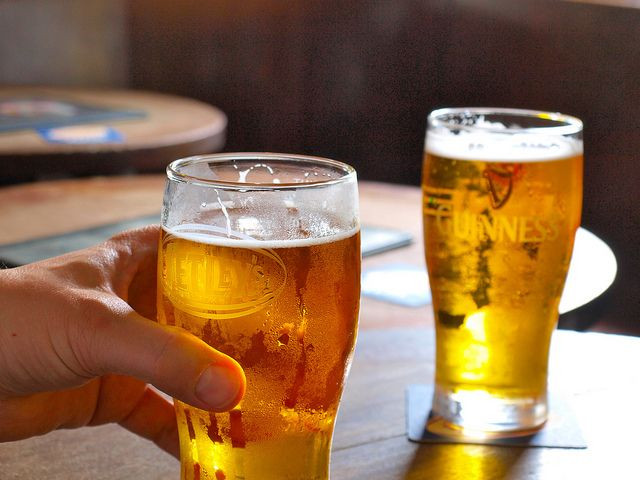Bariatric Surgery Helps You Lose Weight But May Also Lower Your Alcohol Tolerance

Bariatric surgery shrinks the stomach by either using a gastric band to make the stomach smaller, removing a part of the stomach, or rerouting the small intestine to a small stomach pouch. It is one of the most popular weight loss surgeries in the country, also helping patients with type 2 diabetes and hypertension. But while a smaller stomach helps people eat less, what effect does it have on the way people drink? According to new research, it may cause people to get drunk faster.
Roux-en-Y gastric bypass (RYGB) is the most common bariatric surgery performed in the world. Although the surgery allows patients to eat less and has helped with food addiction, it also has been linked to the development of alcohol abuse disorders. For the study, Dr. Marta Yanina Pepino, of the Washington University School of Medicine, St. Louis, and her colleagues ran a series of experiments on eight women who had RYGB surgery within the last five years as well as nine women who were scheduled to have the surgery — they were the control group. The women completed two sessions, one week apart, in which the effects of drinking two alcoholic beverages and a nonalcoholic placebo were tested and measured by their blood alcohol concentration (BAC). Following these sessions, they were asked to fill out a questionnaire.
The researchers found participants who had already undergone the surgery experienced BAC increases up to twice as fast as those who were awaiting surgery. These participants’ overall feeling of drunkenness was also greater than the control group.
"The results from our study demonstrate that RYGB increases the rate of delivery of ingested alcohol into the systemic circulation," the authors wrote. "The alteration in alcohol pharmacokinetics means that the peak in BAC observed after consuming approximately two drinks in women who have had RYGB surgery resembles that observed after consuming approximately four drinks in women who have not had surgery."
Changes in the gastrointestinal anatomy of patients who’ve had RYGB surgery likely cause the small intenstine to absorb alcohol faster, thus causing a person to get drunk faster than they did before the surgery. This may be why many patients have an increased risk of alcohol abuse disorders after undergoing RYGB surgery.
“These findings have important public safety and clinical implications. The BACs in the [test] group exceeded the legal driving limit for 30 minutes after alcohol ingestion, but the BACs in the [support] group never even reached the legal driving limit,” the authors wrote. “The peak BAC in the [test] group also met the National Institute on Alcohol Abuse and Alcoholism criteria used to define an episode of binge drinking, which is a risk factor for developing alcohol use disorders. These data underscore the need to make patients aware of the alterations in alcohol metabolism that occur after RYGB surgery, to help reduce the risk of potential serious consequences of moderate alcohol consumption.”
Source: Pepino, M. Okunade, A, et al. Effect of Roux-en-Y Gastric Bypass SurgeryConverting 2 Alcoholic Drinks to 4. JAMA Surgery. 2015.



























